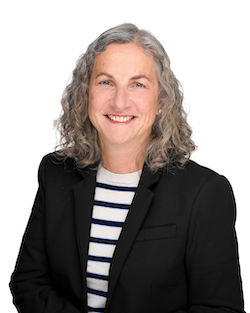This year, the Jewish community will greet Passover with mixed emotions. On a holiday where we celebrate the 3,500-year-old Exodus from Egyptian slavery to freedom, we also mourn the modern-day hostages held captive for so long and the loss of those who will never return to their loved ones.
Passover offers a unique opportunity for families and friends to gather around the seder table, retell the story of the Exodus, eat symbolic foods and, most challenging of all, attempt to keep the younger children engaged until the meal.
It can be difficult to explain to our children the enduring importance of Passover – a tale of survival, courage and resilience. The story of the Jewish people facing an impossible obstacle and conquering it, of our people standing up against oppression, proud of our Jewish identity, confronting and overcoming baseless hatred.
For more than a year, Jewish students have been made to feel othered, embarrassed, threatened and, sometimes, compelled to hide their Jewish identity. Since Oct. 7, 2023, online Jew-hatred and anti-Israel vitriol have become all too common. While cities, overrun by hate-filled protests, seem almost completely desensitized to the hate, we see our children suffering.
An excerpt from the Passover Haggadah reminds us that “in every generation, one must see oneself as having personally come forth from Egypt … and you will tell your child on that day.…” As we sit down at the seder table this year, we will, once again, tell the next generation the story of the Jewish people’s victory against oppression and that pride in our identity is the way to fight oppression.
The younger guests at our seder – our children, our grandchildren, our nieces and nephews – are the next generation of leaders. It will be their responsibility to challenge antisemitism head-on, and it’s our responsibility to educate them about how to do it.
The Centre for Israel and Jewish Affairs remains committed to protecting the quality of Jewish life in Canada. Our team is working with government officials to advocate for the introduction of safe access (bubble) legislation to protect schools and places of worship from the threat of violence or harassment. We are also advocating to enforce existing legislation that combats both online and real-world hate.
We continue to demand accountability from social media platforms, institutions and organizations. We urge the government to support the provinces’ education for judges, Crown attorneys and law enforcement regarding antisemitism and hate crimes. We continue to stand by our policy priorities that include advocating for community safety, for maintaining public order and for fighting antisemitism in schools and on campus.
The community, after a long year-and-a-half, is tired. Some of us are scared. And yet, we remain proud. We know more work must be done to protect ourselves, our children and our Jewish identity. So, this year, as we retell our ancestors’ story to our children, we are reminded that we remember the past to protect our present – and our children’s future. It starts at the seder table. But it doesn’t end there.
Judy Zelikovitz is vice-president, university and local partner services, at the Centre for Israel and Jewish Affairs.




